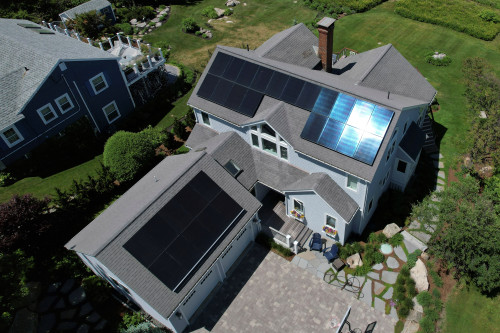
US rooftop solar companies say Republican House bill would be a major setback
By Nichola Groom
(Reuters) -Companies that put solar panels on U.S. homes say a Republican budget bill advanced in Congress this week would deal a massive blow to the industry by eliminating a generous subsidy for homeowners that had buttressed the industry’s growth.
The bill would scrap a 30% federal credit for taxpayers who put up rooftop systems, stifling an industry that has grown ten-fold over the last decade and which now employs more than 100,000 workers, industry players said.
“It certainly is a giant setback,” said Charlie Hadlow, president of EnergySage, an online solar marketplace. “I have solar installers in our large network passing around the contact information for bankruptcy attorneys. That’s not alarmist, that’s happening.”
Many of the biggest residential solar markets are in states that voted for President Donald Trump, including Texas, Florida and Arizona, according to the Solar Energy Industries Association trade group.
The House of Representatives Ways and Means Committee voted this week to allow the 25D tax credit to expire at the end of this year, nine years earlier than planned, as part of a Republican effort to roll back subsidies from former President Joe Biden’s signature climate law, the Inflation Reduction Act.
A spokesperson for Republicans on the committee did not immediately respond to a request for comment.
The bill still has several hurdles to clear before getting a broad package of tax cuts, spending hikes and safety-net reductions through Congress.
The White House did not immediately respond to a request for comment. Trump wants to undo federal regulations and programs introduced by Biden that are aimed at expanding clean energy and combating climate change.
More than half of residential installations qualify for the 25D tax credit, according to EnergySage, which estimates that rooftop systems will be about $8,000 or $9,000 more expensive without it.
The subsidy has been critical for small installers whose customers pay cash or take out loans and then claim the credit on their tax returns.
For panels that are owned by a third party, such as a bank, and leased to homeowners, system owners are able to claim a separate tax credit that the House bill would leave in place until 2032 but start to phase out in 2029.
That market is dominated by large players like Sunrun.
“You want to just place a larger burden on the regular Joe who pays taxes? It doesn’t seem fair,” said Jack Ramsey, CEO of Altsys Solar in Tulare, California.
Ramsey anticipates cutting his nine-person staff to four or five people if the credit is eliminated.
At the end of 2024, the U.S. boasted 36 gigawatts of residential solar capacity, up from 3 GW in 2014 and a level equivalent to a third of the nation’s nuclear power capacity.
Rooftop solar accounts for more than a third of solar industry jobs, according to the Interstate Renewable Energy Council.
Rob Kaercher, CEO of Absolute Solar in Lansing, Michigan, has 24 employees and wants to hire more, but will not if the credit goes away.
“I strongly urge the credits to be maintained, because it would do a tremendous amount for local businesses just like ours to be able to continue to hire and grow,” Kaercher told reporters.
The move to eliminate the credit caught many in the industry off guard.
Thomas Clark, the owner of Northstone Solar in Whitefish, Montana, met with staff from his state’s Congressional delegation in Washington earlier this year and came away from the meeting feeling the credit was safe.
“Obviously this happening so quickly after those meetings really hurts as a constituent,” Clark said.
(Reporting by Nichola Groom; Editing by Alistair Bell)

